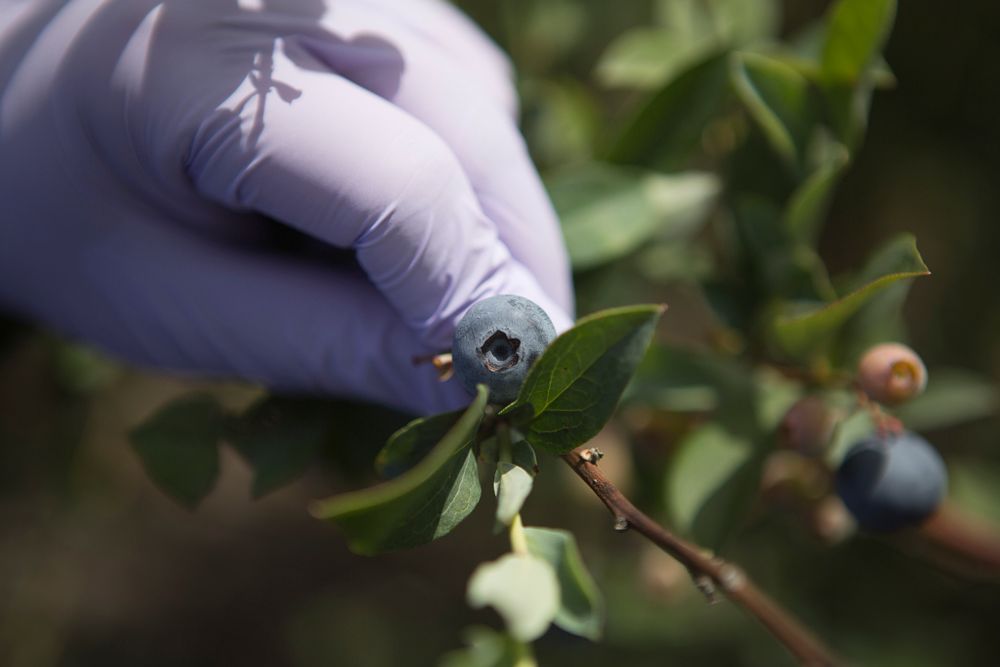CAES Food Scientist Faith Critzer Explores Essential Oil Coatings for Organic Produce
CAES Food Scientist Faith Critzer Explores Essential Oil Coatings for Organic Produce

Originally posted in CAES Newswire, written by Lillian Sosbee.
Faith Critzer, a professor in UGA’s Department of Food Science and Technology and a faculty member in the online Master of Food Technology program, is part of a team studying essential oil coatings to improve the safety and shelf life of organic produce. Organic fruits and vegetables face higher risks of spoilage and contamination due to the strict restrictions on chemical additives in organic farming.
“We’re taking a holistic approach. What makes this project so interesting is that we are only working with materials that can be used in organic production,” Critzer explained. “There are really good options out there for conventional fruit and vegetable production, but organic production has more limitations. We see this as an opportunity to explore and find solutions for the organic markets and commodities that we’re working with.”
As part of a $3.5 million USDA Organic Research and Extension Initiative grant, Critzer and fellow CAES researcher Laurel Dunn are testing essential oils like cinnamon bark, clove, peppermint, rosemary, and thyme as fruit coatings that comply with USDA organic standards. The oils aim to reduce dehydration, extend shelf life, and kill foodborne pathogens.
“Most crops naturally have a wax coating, and what we are doing is just adding a bit more to lock in the water in the fruits and reduce dehydration,” Critzer said. “We are also looking at the antimicrobial properties of different essential oils to help kill foodborne pathogens and organisms that cause spoilage.”
Critzer’s research reflects the growing demand for organic food, which reached $63.8 billion in U.S. sales in 2023. By extending shelf life, these coatings could significantly reduce food waste while helping organic farmers meet consumer demands.
“A lot of fresh food goes to waste simply because spoilage microorganisms are able to eat our produce before we get around to eating it. These coatings could have a big impact on waste reduction by naturally extending the shelf life of our fruits and vegetables,” said Dunn.
Faith Critzer’s work showcases the kind of expertise and focus on innovation you’ll find in UGA’s online Master of Food Technology program—a great opportunity to dive deeper into food safety and sustainability while growing your career.
